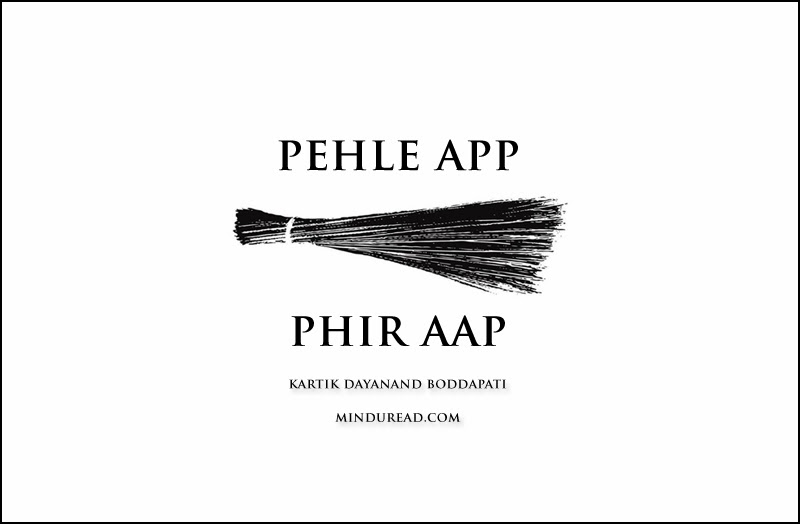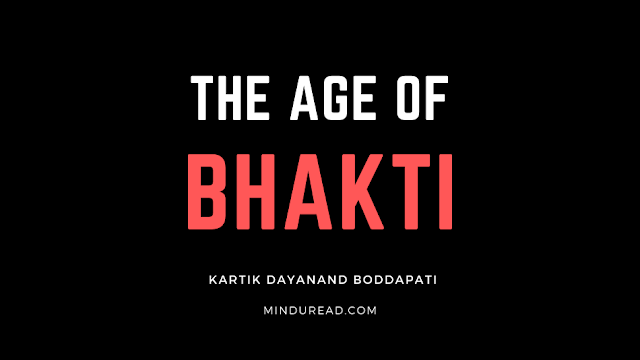Pehle APP - Phir AAP: The story of two disrupters
AAP and APP - One is a political party, the other a term
used for mobile/internet applications.
One might think the only connection between AAP and APP are
their similar sounding names. The Aam Aadmi Party's name AAP is often spelled
as APP by mistake. But the truth is - they have more things in common
than one can ever imagine. For starters, both are new, disruptive in nature, upsetting
the way things are run conventionally.
I am going to list out in this blog post many more points
that are eerily common to both. Here they go...
Pehle APP:
Some of the most popular and successful APPs today are
Twitter, Instagram and Snapchat among many others. Twitter has now gone public,
Instagram was acquired for a billion dollars and Snapchat is reportedly getting
offers of four billion dollars and upwards to be purchased - staggering amounts
these are.
One common theme among them apart from their high valuations
is the extreme simplicity of the ideas on which they are built.
- Twitter is a service that let's you post status updates upto 140 characters at a time.
- Instagram is a simple image sharing platform with basic filters.
- Snapchat is built on the concept of ephemerality. You share an image and it disappears once the recipient views it.
Instead of letting these newbies capture the market, any of
the established big guns like a Google, Microsoft or a Yahoo could have built
any of these APPs in a matter of days, maybe hours. But they never did.
Here is why:
- The big guns think the ideas are too simplistic, lame, even bizarre.
- They first ignore them, then scoff at them, then ridicule and mock them.
- By the time the big guns realize the value of the new APPs, it is too late.
- They then try to replicate the same model but find the going tough.
- The fan base and user loyalties lie with the disrupters - think of Google trying to build a social network like Facebook, once they fall behind, it's hard to play catch up.
- The first mover advantage is always with the disrupters, unless the following thing happens - The big guns or another disrupter moves faster and disrupts further.
Best example is that of Hotmail and Gmail - at the peak of
its popularity Hotmail provided 2 or 4 MB space per user as storage. Gmail came
along and provided a massive never before heard figure of 1 GB of free storage
space. This is the peaks of disruption, how could anyone compete with this
logic.
To keep pace and to keep themselves relevant and
functioning, the following dynamics come into play between the big guns and the
newbies:
- The newbies get acquired by the big guns for a fat sum - Facebook tried to replicate the Instagram model and failed. They then purchased Instagram for a whooping one billion dollars. You can't beat them; buy them, works fine for both parties.
- The newbies take partial support and give a minority stake to the big guns in their company - Facebook tied up with Microsoft in its early days for financial support. Facebook is still independent but Microsoft benefits in the long run as Facebook's partner over direct rivals like Google. Bing, a Microsoft product is the default web search option on Facebook.
- The brave newbies with guts decide to go it all alone. They do that by going public - Twitter is the prime example of this model and Snapchat seems to want to go the same way too by resisting the four billion offer from Google.
Phir AAP:
Though I didn't say anything about AAP so far I am sure by
now you have noticed the similarities with the APPs I mentioned above. Maybe
you really don't need to read any further, but still, here it is...
Needless to say, the Aam Aadmi Party is the newbie here
while Congress and BJP are the big guns. And this is what has been happening in
the political arena off late:
- The big guns think the ideas of AAP are too simplistic, lame, even bizarre.
- They first ignore them, then scoff at them, then ridicule and mock them.
- By the time the big guns realize the value and impact of AAP, it is too late - Delhi election results are the wake up call.
- They then try to replicate the same model but find the going tough - Rahul Gandhi says there is a lot to learn from AAP, time will tell if they will be able to transform themselves well.
- The fan base and user loyalties lie with the disrupters - think of Congress and BJP trying to build an anti corruption narrative like AAP, they have fallen behind, it's hard to play catch up now.
- The first mover advantage is always with the disrupters, unless the following thing happens - The big guns or another disrupter moves faster and disrupts further.
Best example is that of AAP's promise of free water upto 700
Ltrs per day and 50% reduction in electricity tariffs, this is the peaks of
disruption - reminds me of the 1 GB free storage by Gmail. Can the big guns
outdo AAP and promise something bigger?
To keep pace and to keep themselves relevant and functioning,
the following dynamics come into play between the big guns and the AAP:
- The newbie gets acquired by the big guns for a fat sum - Congress or BJP try to takeover AAP. You can't beat them; buy them, works fine for both parties. Seems like an unlikely proposition though in view of AAPs ideologies; but you never know what the future has in store.
- The newbies take partial support and give a minority stake to the big guns in their campaign - AAP taking the support of the Congress to form government in Delhi falls under this category. The AAP is still independent but Congress benefits in the long run as AAP's partner (through outside or inside support) over direct rivals like BJP.
- The brave newbie with guts decides to go it all alone. They do that by going public - AAP's alliance with Congress might be a stop gap arrangement and they would want to be masters of their own destinies. Hence the direct support of public through donations and volunteers might be their way to success. They have already displayed how good they are at doing this. Only time will tell if they succumb to the lure of the big guns through whatever compulsions that might arise in future.
Whatever it is, the arrival of AAP has shaken up the entire
political establishment. Whether they succeed or not, whether their policies
work or not, there is talk of innovation in the political process and the big
guns are on their toes now, just like the competitive APP ecosystem. We can safely assume that the days of political complacency will be gone soon, for good.
Time for us, the aam aadmis to rejoice and hope that this election year '2014' truly turns out to be a very Happy New Year to all of us.
Happy New Year folks!
Follow @KartikDayanand
'Mind u Read' on Facebook









Great Compare & Contrast!! Loved the way you tied the two analogies together. Really admire the way your mind thinks through all of these...looking forward to reading more such interesting posts. A very Happy New year to you.
ReplyDeleteDeepta.
pahele APP is ok but no more AAP
ReplyDelete